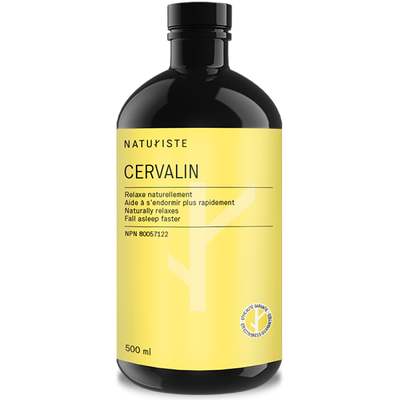A GUIDE TO SEASONAL RHINITIS
Like you, we wondered what the mystery was behind the term “hay fever” for seasonal allergies. For starters, it has nothing to do with hay. It wasn't until the 19th century that a doctor named Charles Harrison Blackley shed some light on this matter by confirming that hay fever is not an allergic reaction because of the hay, but rather due to pollen. So, hay fever is just a common term for this condition that can cause uncomfortable symptoms all year round. In time for the cold weather, make yourself comfortable as we will discuss seasonal rhinitis and also prepare you to deal with it.
What is it?
Unlike the common cold, this allergy does not start with a virus. Here's what happens. Our immune system identifies an airborne allergen as a threat. In response to these environmental factors, it produces immunoglobulin E antibodies. With the duty to respond to harmless irritants considered harmful, the immune system releases chemicals such as histamine into our bloodstream. This causes a reaction that results in hay fever symptoms. Environmental factors that cause this inflammation can include pollen from plants and trees. Not to be confused with the common allergy called infectious rhinitis, this one is not contagious.

Does rhinitis really last all year round?
Hay fever occurs in summer, spring and fall. In fact, due to the blooming of trees and plants, the amount of pollen increases. There are also so-called perennial allergies, which occur throughout the year. This type of allergy is linked to irritants that are always around us like pet dander and dust mites. Some may find themselves struggling with both conditions at once, which inevitably worsens the symptoms. As common in children as in adults, seasonal rhinitis is not always easy to prevent because the allergens or irritants are very small particles in the air inhaled through the nose and mouth. Anything that is not recognizable by our immune system automatically becomes a danger according to him.
What symptoms can you observe?
Symptoms include congestion, sneezing, runny nose, headache, poor quality sleep, sinus pain, sore throat. Also, increased mucus in the nose and throat, general discomfort due to fatigue, wheezing, coughing and difficulty breathing may be problematic. In addition, there may be itching in the palate of the mouth, throat, eyes and nasal passages.
Your risk of contracting hay fever is increased if you suffer from asthma, eczema or if you have a family history of allergies.
Such a condition can be difficult because it can affect your work performance or your academic performance. However, when you are able to spot the triggers, you can be well prepared to fight against it.

Can you spot triggers in advance?
Although most allergies occur year-round, and you can be troubled by several at once, there are a few clues that help us better prepare for seasonal rhinitis.
Tree pollen — Early Spring
Grass pollen — Late Spring + Early Summer
Ragweed Pollen — Fall
Indoor allergies — Winter
Pet hair — All Year Round
How to prepare to fight hay fever?
Although limited exposure may be beneficial, symptoms are not relieved for everyone only this way. Here are some additional tips to help reduce the severity of allergic rhinitis.
- Close windows during peak pollen times
- Do not hang laundry to dry outside as pollen can stick to clothes
- Air conditioning of your house and/or your car
- Use a dehumidifier to reduce indoor humidity
- Avoid mowing the lawn
- Cover your nose and mouth when cleaning the house
- Wash your hands after petting an animal
- Wash clothes after contact with an animal

Naturiste Recommendations
Here are some of our recommendations for natural products that soothe and help with seasonal rhinitis.
Vitamin B supports your recovery from allergiesby impacting your energy levels and cellular health. When used to treatallergic reactions, vitamin B ensures proper functioning of the immune system.
A bioflavonoid that stabilizes cell membranesthat release histamine, which triggers allergic symptoms.
A protective super-antioxidant, which helpsneutralize free radicals and regenerate coenzyme Q10 which improves oxygenationand immunity.
Rest assured, fall doesn't have to be dreadful when you've got a solid allergy toolkit!




Leave a comment